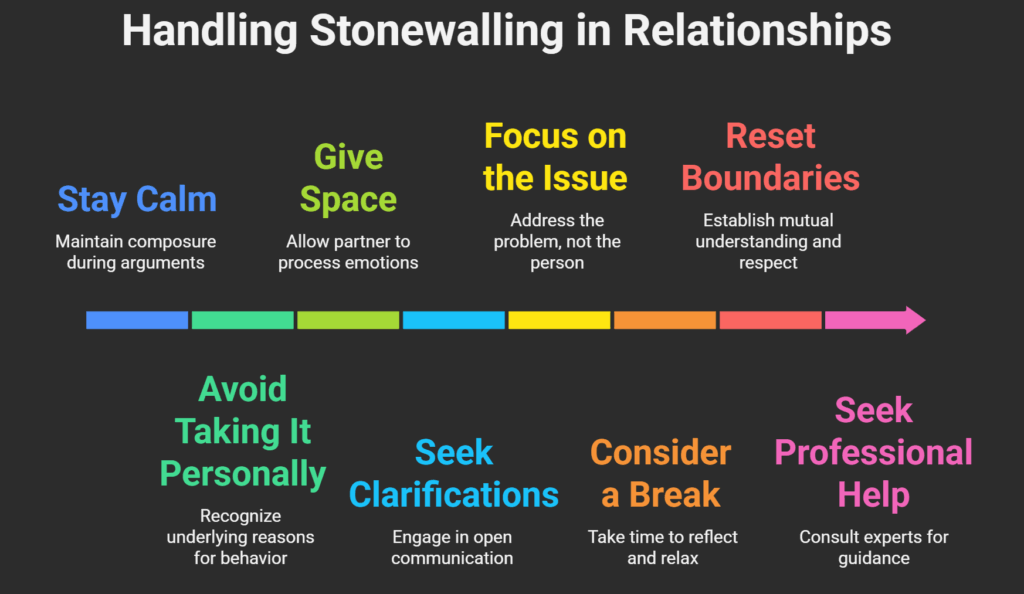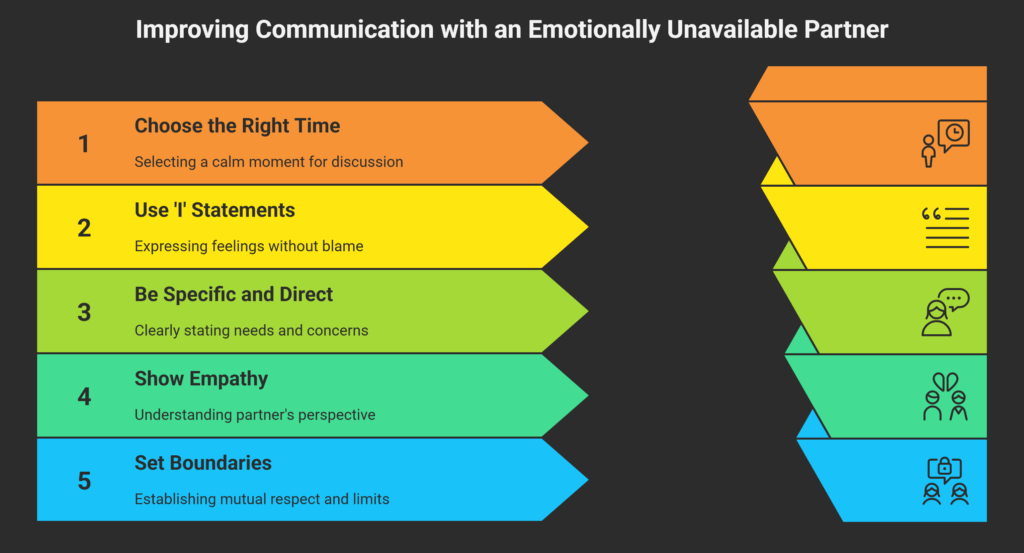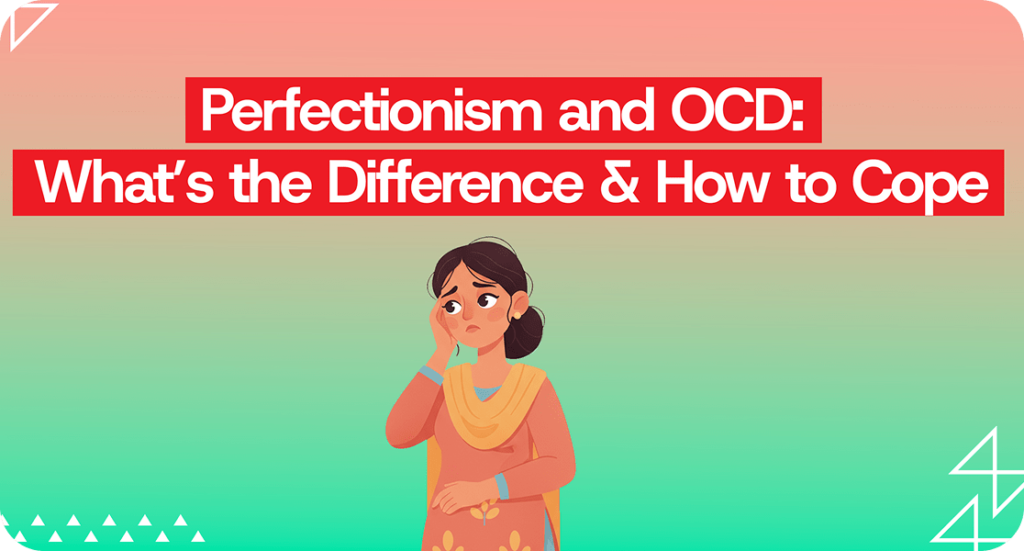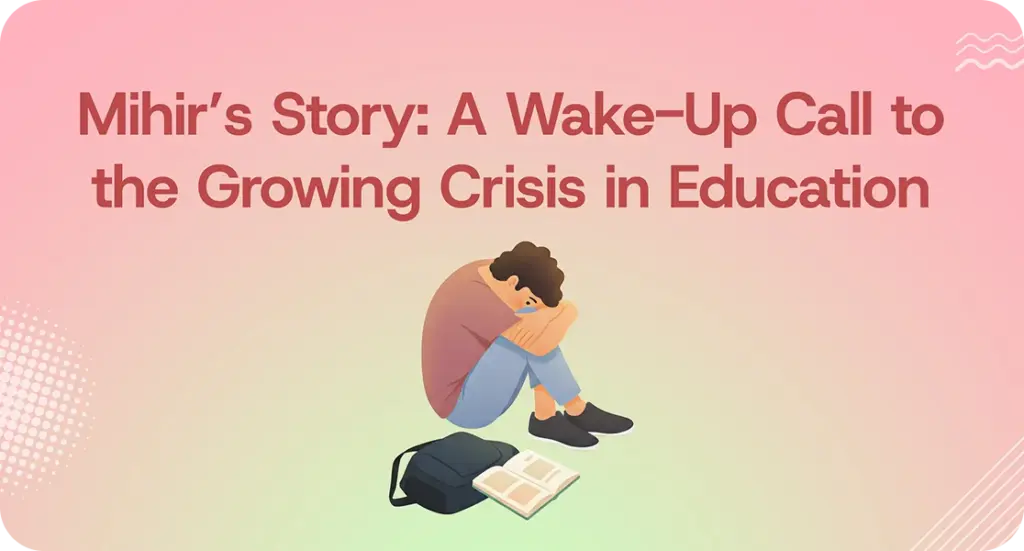
What to Do When Your Partner Shuts Down During a Conflict
Need to Talk to Someone?
1. Don't Take It Personally:
2. Give Them Space:
3. Take a Break from Conversation:
4. Communicate Calmly, Clearly, and Effectively:
5. Active Listening:
6. Validate Their Emotions:
7. Seek Professional Help:
Understanding stonewalling and emotional withdrawal
Understanding Stonewalling
- Stonewalling can be a coping mechanism for emotional overwhelm.
- It can be perceived as avoidance or punishment by your partner.
- Effective communication and empathy are essential in understanding and addressing stonewalling behaviour.
How to Handle Stonewalling in a Relationship

1.Stay Calm:
2. Avoid Taking It Personally:
3. Give Space:
4. Seek Clarifications:
5. Focus on the Issue, Not the Person:
6. Consider a Break:
7. Reset Boundaries:
8. Seek Professional Help:
Why Does My Partner Go Silent?
Understanding the Reasons Behind Stonewalling
1. Fear of Conflict Escalation:
2. Emotional Overwhelm:
3. Avoidance:
4. Defensiveness:
5. Lack of Communication Skills:
6. Past Trauma:
7. Fear of Saying Something Hurtful:
8. Need for Time to Process
Communication Tips for an Emotionally Unavailable Partner

1.Choose the Right Time and Place:
2. Use 'I' Statements:
3. Be Specific and Direct:
4. Avoid Criticism and Judgment:
5. Show Empathy and Understanding:
6. Validate Their Emotions:
7. Don't Take It Personally:
8. Set Clear Boundaries:
9. Encourage Open Communication:
10. Seek Outside Help:
Feeling Overwhelmed?
Oppam Therapist Wherever You Are
Dealing with silence during the conflicts
1. Stay calm: Try not to escalate the situation or take the silence personally.
2. Avoid taking it as a personal attack: Silence can be a coping mechanism or a way to avoid conflict, not necessarily a personal rejection.
3. Give space: Respect the other person’s need for space, but also communicate your own needs and feelings.
4. Use “I” statements: Express your feelings and thoughts using “I” statements, which can help avoid blame and defensiveness.
5. Break the silence: Try to reinitiate the conversation in a non-confrontational way, using open-ended questions or statements.
6. Seek clarification: Ask questions to understand the other person’s perspective and feelings.
7. Avoid assumptions: Don’t assume you know what’s causing the silence or what the other person is thinking.
8. Show empathy: Try to understand and acknowledge the other person’s feelings, even if you don’t agree with their perspective.
9. Take a break if needed: If the silence is causing more tension, consider taking a break and revisiting the conversation when emotions have cooled down.
10. Seek outside help: If silence during conflicts is a recurring issue, consider seeking the help of a therapist or counsellor to work through communication and conflict resolution challenges.
• “I feel like we’re not communicating effectively. Can we find a better way to talk about this?”
• “I understand that you’re upset. Can you help me understand what’s going on?”
• “I feel like we’re not on the same page. Can we find a way to understand each other’s perspectives?”
• “I care about you and our relationship. Can we work together to resolve this issue?”

